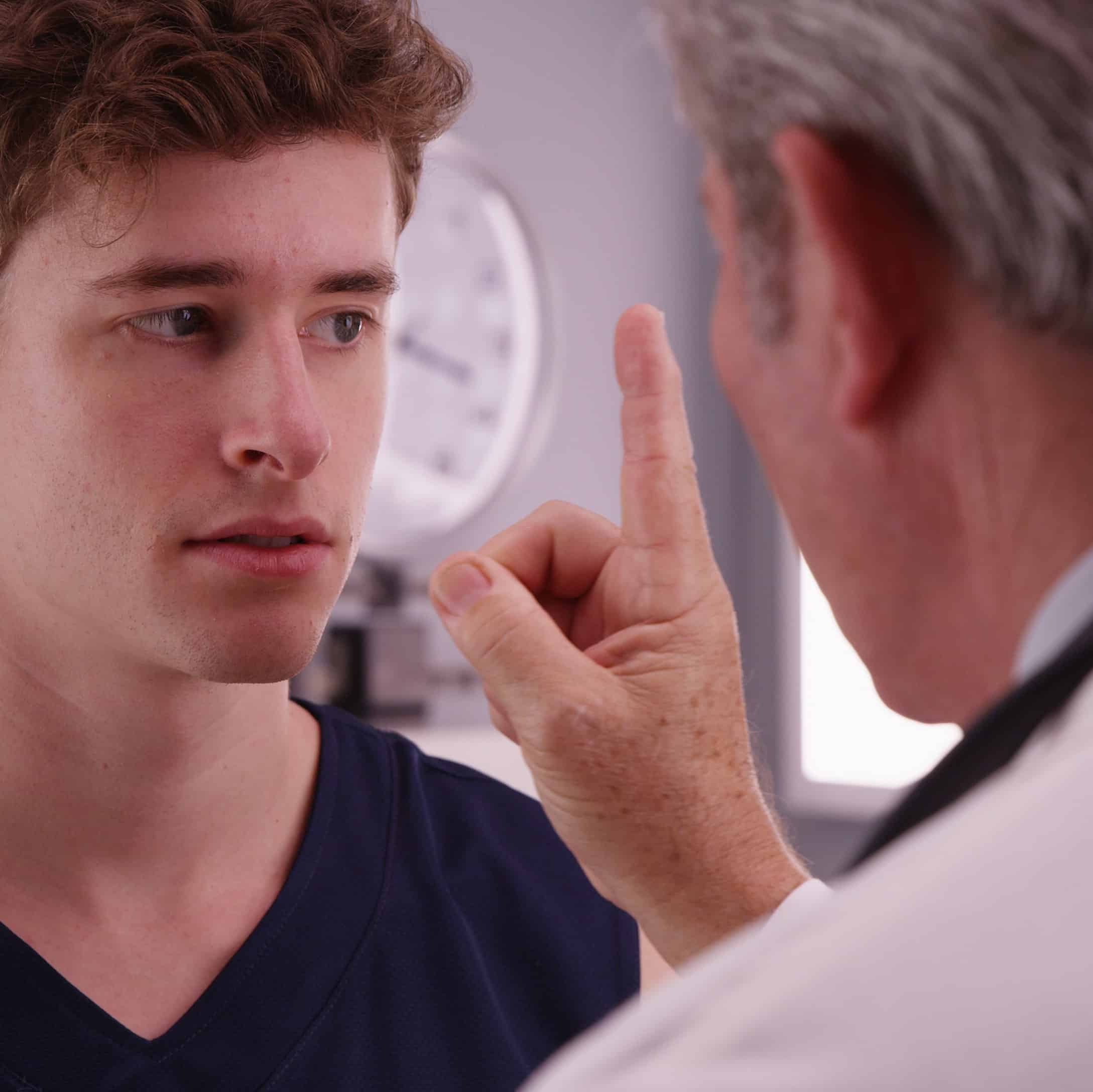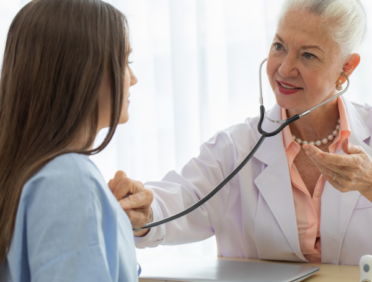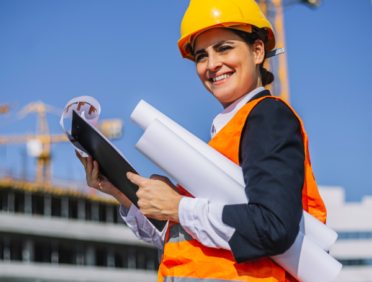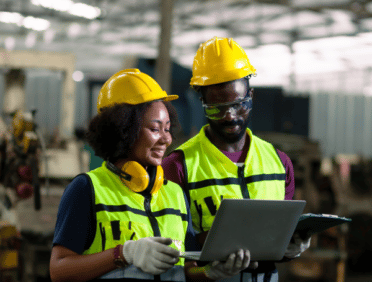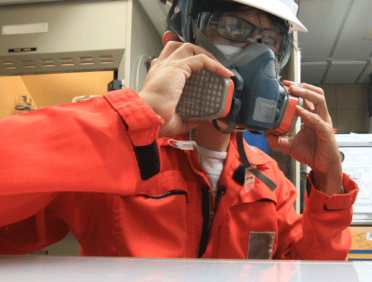Guidance on how to reduce the risk of sustaining a mild or traumatic brain injury, how to prevent incidents of concussions and raising awareness of concussion risks.
When you hear the word concussion, more often than not you will think about someone being knocked unconscious and then coming round. Whilst this is often the case, and is a good representation of what a concussion is, there can be so much more to it than this.
A concussion is a type of traumatic injury to your brain (also known as a TBI) and it can be caused by a variety of things. Bumps, blows and jolts to the head area or to the entire body can mean that the brain moves forwards and backwards rapidly which can end up injuring the brain.
You don’t have to have been knocked unconscious for a concussion to have occurred, even someone who remains conscious will find that there is a temporary loss of normal brain function.
What does your brain do when you get a concussion?
It goes without saying that shaking your brain around within your skull is going to cause some amount of damage. Concussion leaves your brain with damaged neurons; most of the time the shaking motion causes them to stretch further than they normally would, which, in extreme situations can actually lead these neurons to break completely.
These injured neurons then can find it much harder to communicate, which is part of the normal function of the brain. In more serious concussions, the connections that the neurons have made with those around them in the brain may even be broken. This means that it is harder for the brain to do its job.
The brain is responsible for a variety of functions within the body, which means that if it is finding it hard to function as it should, then your overall body can be impacted.
The main symptoms of a concussion are:
- Headaches
- Memory issues
- Irritability
- Balance problems
- A slow visual processing speed
- Problems sleeping
- Issues with talking (such as slurred speech and knowing which words to use)
- Difficulty in focusing and concentration
You may also find that you just feel differently, that you are not quite yourself. When you feel this way, it can be hard to explain your symptoms, but you will know that they are there and that you need some medical help.
Can a concussion change your life?
For many people, a single concussion probably won’t be enough to change their entire lives. It may just make them feel a little different and out of sorts for a short period of time, it may also mean that they are unable to work and may need to rest at home until they feel more like themselves.
However, if you are someone who has had a severe concussion, or you have had more than one concussion in a shorter period of time, then the impact that it has can be much more long-lasting.
As well as the above symptoms, some people have also said that they have experienced an entire personality change. Although this is not always a common occurrence.
How does concussions occur?
There are a variety of ways that a concussion can occur. Falls are one of the most common causes of concussions, as are playing a contact sport (especially if the proper equipment isn’t worn). Concussions can also occur during a car, motorbike or bicycle accident; or it may be due to being hit with an object too.
Anything that causes your brain to move around in your skull is enough to cause a concussion and, if any of the obvious signs occur, should be checked out.
How to manage a concussion?
The best way to manage a concussion is to rest. You should try to avoid stress as much as possible and ensure that you are not on your own for the first 24 hours just in case any complications arise during this period of time.
You should not go to work until you feel better and you should definitely make sure that you don’t drive until you feel recovered.
You should also avoid contact sports for 3 weeks and it is best not to drink any alcohol or take any prescribed sleeping pills until you are recovered and are back to feeling normal.
If you have any swelling, perhaps from being hit on the head, then you should hold an ice pack on it for a short period of time, but regularly. This will help to reduce it. It may also be a good idea to take a painkiller for headaches too.
Shaken baby syndrome prevention
Whilst many concussions can be caused by an accident, there are some that may not be entirely accidental. Shaken Baby Syndrome is when a baby has been moved in a way that has caused a brain injury. Babies cannot hold their own heads up, which means that they are much more likely to receive a brain injury than older children and adults.
One of the ways that this can be prevented is to hold a baby carefully, giving their neck and head lots of support; this way you are limiting the amount that their head moves, which will reduce the chance of them receiving a concussion and a brain injury.
Reducing brain injury risks from concussion
There are lots of different risk factors when it comes to brain injury from concussion, thankfully there are also lots of things that you can do to try and reduce the chance of developing a brain injury from a concussion.
-
Add soft surfaces to playground
Playgrounds are great fun for children but can be a risk of concussion. A soft surface on the floor and on as much of the equipment as possible can help to reduce this risk.
-
Don’t drive under the influence of alcohol or drugs
Not only should you not drink and drive (or take drugs for that matter) in order to be on the right side of the law, but it also reduces your risk of being involved in a car crash (and getting yourself a concussion).
-
Don’t text or use a cell phone while driving
Another law that drivers must abide by is not to use their phones when they are driving. A cell phone can take your focus away from the road, which means that you end up increasing your risk of being involved in a crash.
Whilst adults know that it can be dangerous to lose your balance on the stairs, children don’t have the same concept of danger. This means that you need to protect your child on the stairs and fitting stair gates can help you to do this.
Children need to be well protected in a car, which is why you should invest in a good quality car seat and ensure that they are always well-fitted.
-
Follow motor vehicle safety rules
We have already mentioned one or two of the main safety rules when it comes to using a motor vehicle. However, you should make sure that you always know and then follow the main motor vehicle safety rules.
Accidents will happen and sometimes you may think that there isn’t much that you can do to try and reduce this. However, you need to think about how you can prevent falls in your home and reduce the chance that if you do fall, you won’t get too injured.
-
Prevent head injuries in children
As adults you need to try and protect your children (as much as you can that is) from head injuries that could then lead to a concussion.
If you are doing an activity that could end up with a head injury happening, then you must wear a helmet. This will protect your head.
-
Wear correct protective equipments at work
Not everyone has a job that can be dangerous, however, if you are doing a job that requires you to wear protective equipment, you should make sure that you do this.
You should always wear your seat belt in a vehicle that has them. This will limit your chance of receiving a head injury should you be involved in a car accident.
-
Wear protective recreational equipments
When you do any recreational activities that could cause you harm, it is important that you wear any relevant protective recreational equipment that will help keep you safe.
-
Wear protective sports equipments
Sports can be a major risk factor for concussion, this means that you should always wear protective sports equipment to make sure that you can keep yourself (and those around you) safe.
Who is at Greatest Risk?
(Fall Prevention)
Whilst accidents can happen to everyone at any point there are always those who are at most risk of falls (and therefore of having a concussion).
The older generation is most at risk of a fall, this is usually linked to long-term health conditions. Especially those that are going to impact their balance. It is thought that those who are over 80 are likely to have at least one fall a year.
This means that you need to consider fall prevention in order to keep them as safe as possible in their home and out and about. Consider ways to help them to keep their balance and to ensure that they stay steady on their feet.
You should also consider having a method for them to make contact with you or another trusted contact, should they fall and end up needing assistance to get them up on their feet.
Bicycle safety
Riding a bike can be a convenient and cost-effective way to get around, especially in cities when you are commuting. However, they can be dangerous if you do not take the right precautions.
Bicycle safety is important to get right. Not only should you consider what things can be done to keep you safe whilst you are on your bike, but you also may want to invest in good quality protective equipment too.
That way you can be sure that you are always going to be safe, or at least reduce the risk of getting a serious injury should you be involved in a crash or come off of your bike at any point.
Motor vehicle safety
When you are driving your car you have a responsibility to keep those around you as safe as possible. Not only this, but you also need to keep yourself safe too. This means that you need to follow the rules of vehicle safety.
Things such as seatbelts are there to minimise your risk of injuries if you should be in an accident, especially as far as your head is concerned. Not only this, but you can also make sure that you keep those in the car with you safe too, particularly true for children who are going to need boosters or car seats in order to keep them safe.
Pedestrian safety
If you are walking around and about, then you are in charge of keeping yourself safe. You need to be aware of the world around you and take steps to protect yourself from harm.
Not only is this true on roads and areas where you may come across cars, but also when you are out in more remote places too, where you could trip and fall.
Team sports
Playing sports can have a whole host of positive benefits for you, not only for your physical health but for your mental health. This is definitely true when it comes to team sports. However, it is important that you, keep yourself safe when you play team sports.
You will often be given protective equipment to use during the games, as well as being advised the main things that you need to do as an individual to keep yourself and those around you safe.
Another thing that you can do to make sure that you can keep yourself safe, particularly when it comes to head injuries; is to study a Concussion Awareness Training. Not only will this help you to identify a possible concussion. But also give you the tools to be able to manage this and ensure that the person who is concussed is taken proper care of.
To download a .pdf of this blog, please click here
